Sage X3 is a powerful ERP solution designed to streamline business processes such as procurement, inventory, and financial management. Its flexibility allows businesses to customize workflows to meet specific requirements, including automation of procurement tasks.
The client required automatic creation of Requests for Quotation (RFQs) based on the products listed in the detail lines of a purchase request. For RFQ generation, the system references the suppliers defined in the Product Master’s Supplier tab. From these suppliers, the top three (based on priority) are automatically selected to generate individual RFQs. This blog outlines how we implemented this customization in Sage X3 to improve procurement efficiency.
We have added a custom button “RFQ Generation” in the Purchase Request screen (see Fig. 1). In this example, two products RM00003 & RM00001 were added in the detail lines, and after clicking the RFQ Generation button, two different RFQs were generated automatically.
New Stuff : How to Set Up a Default Journal Entry Transaction in Sage X3
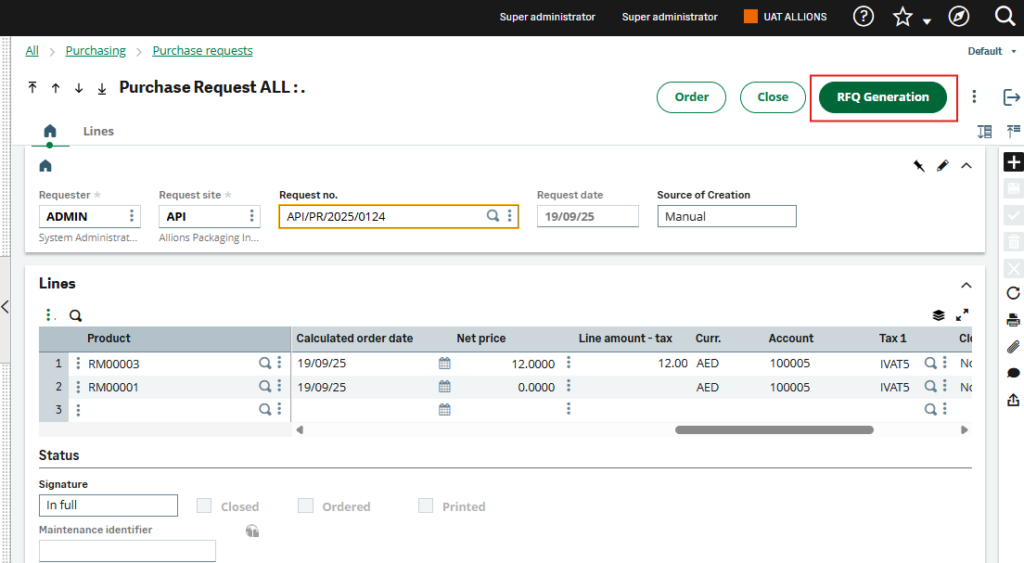
In the Product Masters RM00003 and RM00001, suppliers are tagged in the Supplier tab. During RFQ creation, the system automatically fetches the top three suppliers from this tab to generate the RFQs.(see Fig. 2, and 3)
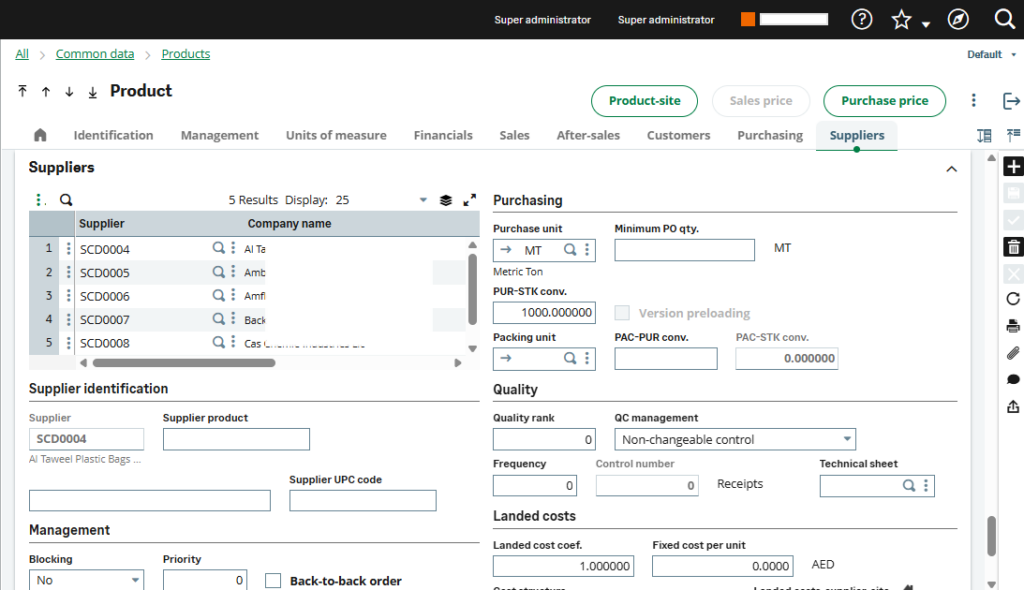
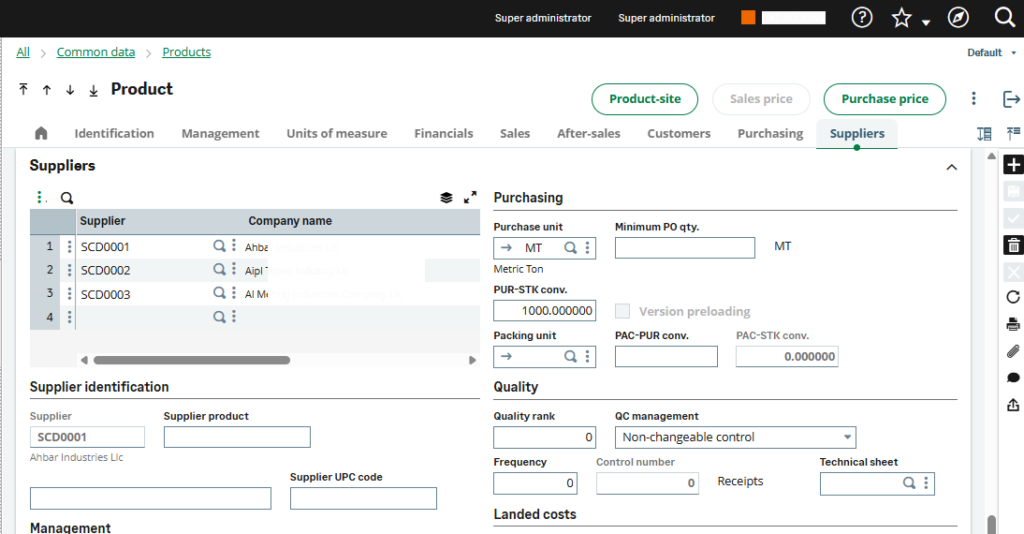
After clicking the RFQ Generation button, a pop-up appears confirming that the RFQ was generated successfully (see Fig. 4 & 5).
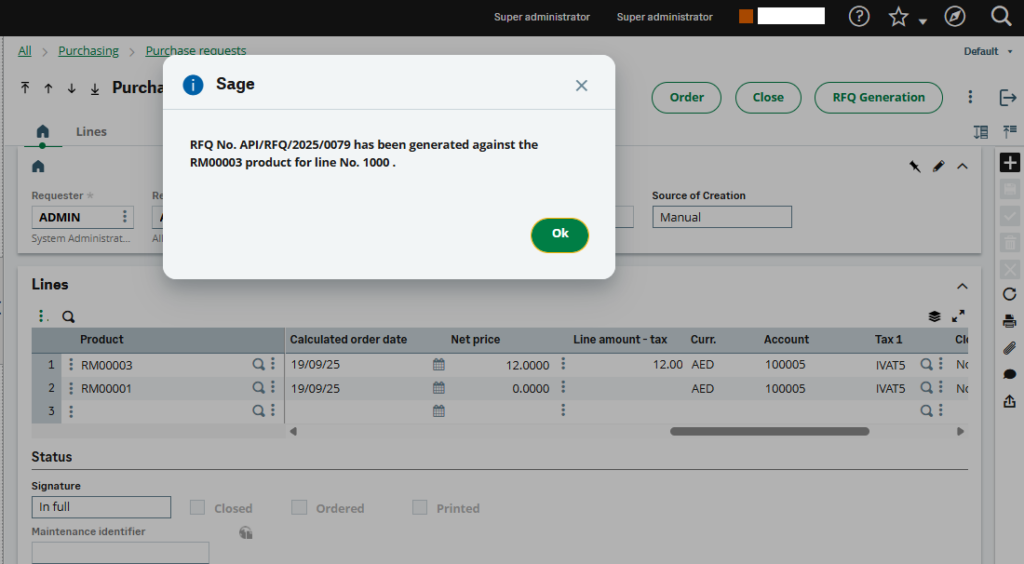
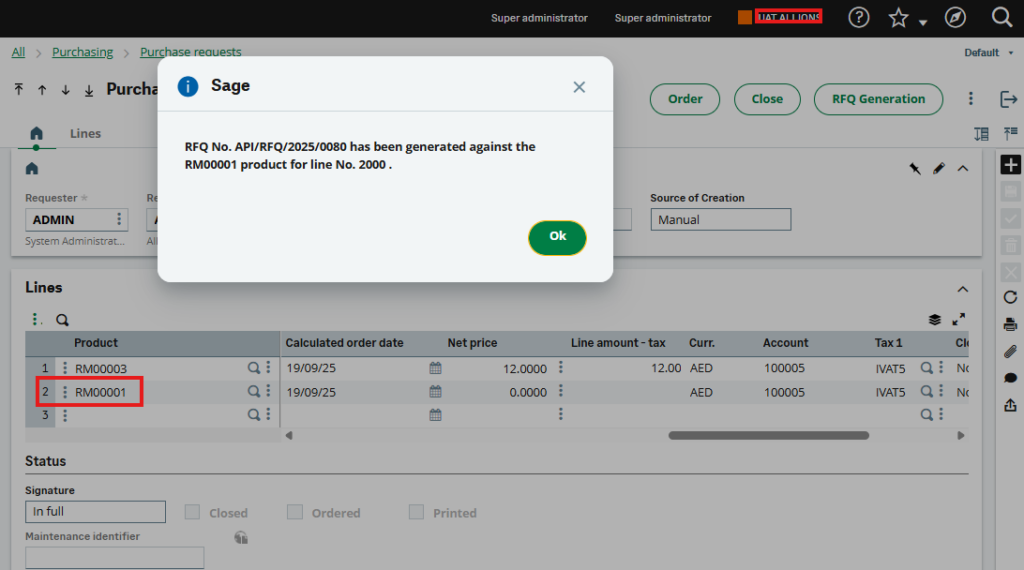
After clicking the OK button, we checked the Request for Quotation screen, and the RFQ entries were generated successfully (see Fig. 6 & 7). Additionally, after RFQ generation, the RFQ Generation button on the Purchase Request screen is automatically disabled to prevent duplicate creation.
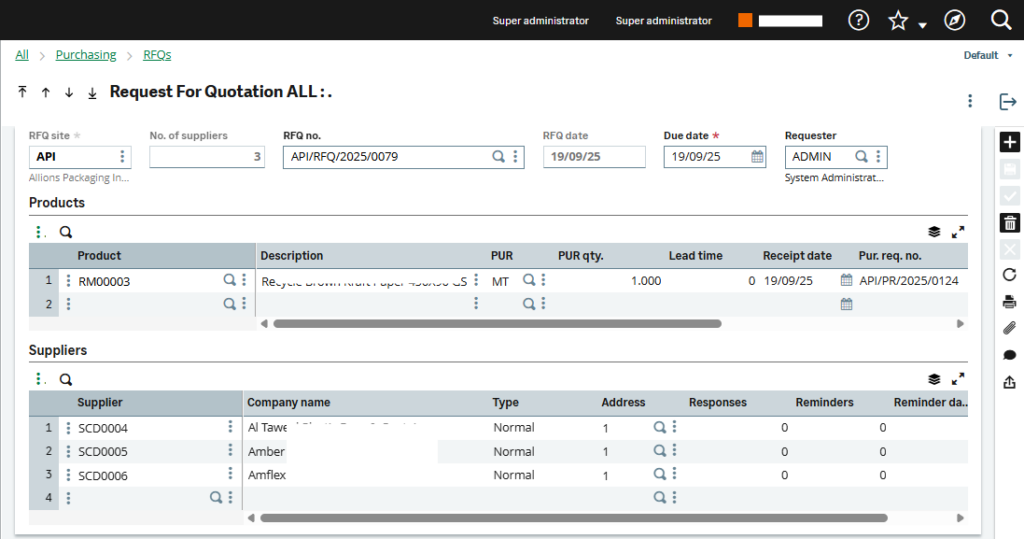
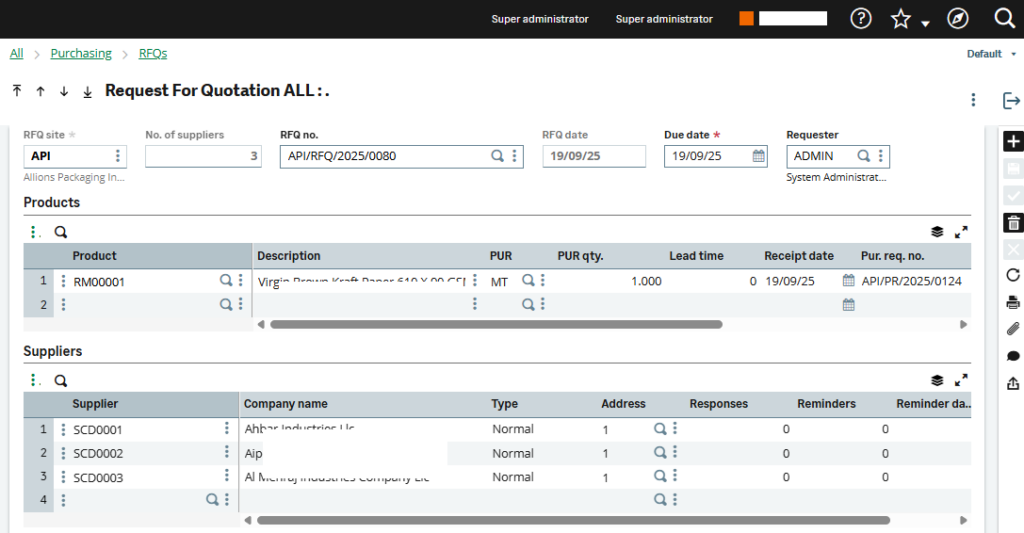
In this blog, we demonstrated how Sage X3 can be customized to automate RFQ creation from Purchase Requests. By leveraging the suppliers defined in the Product Master’s Supplier tab and selecting the top three based on priority, the system generates RFQs efficiently. This customization is handled through a custom script, streamlining procurement, reducing manual effort, and enhancing overall operational efficiency.
[about_us_blog_common]